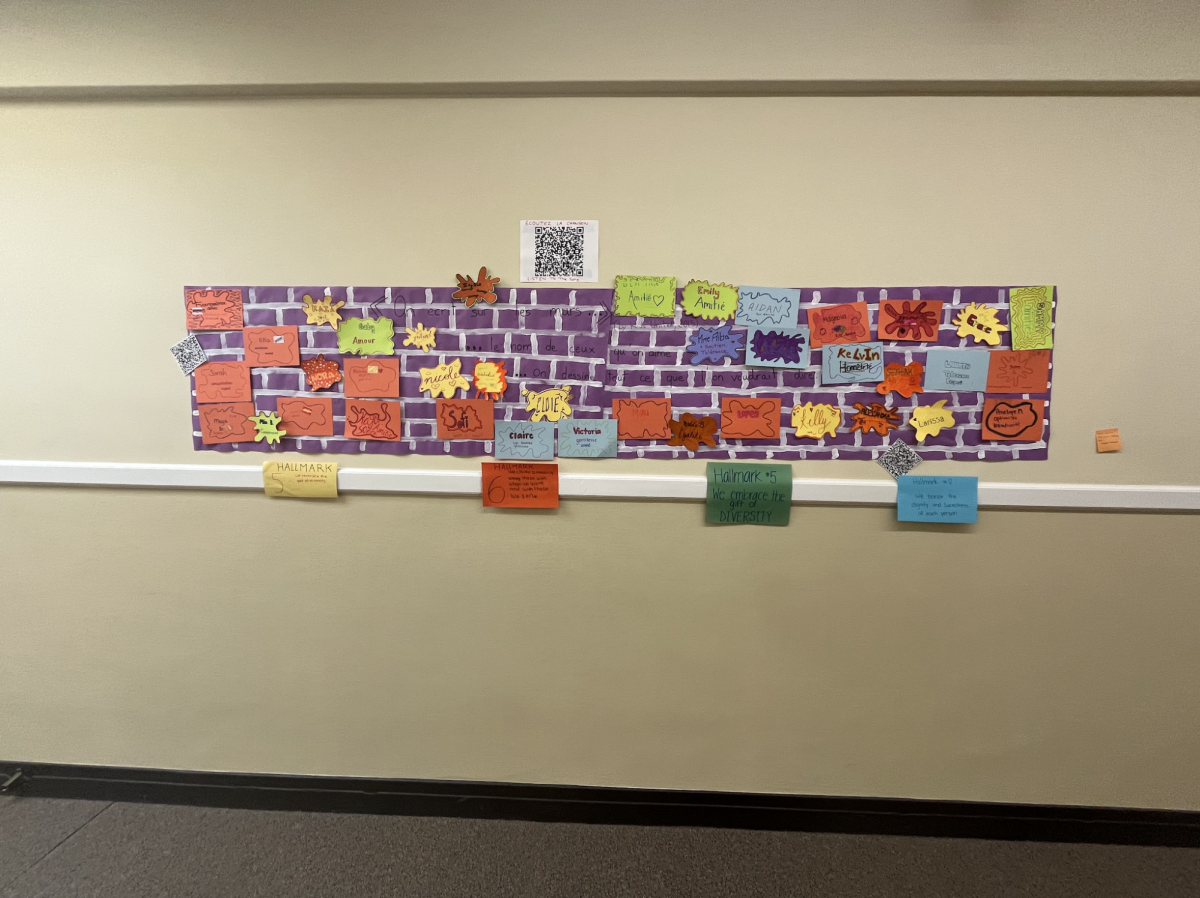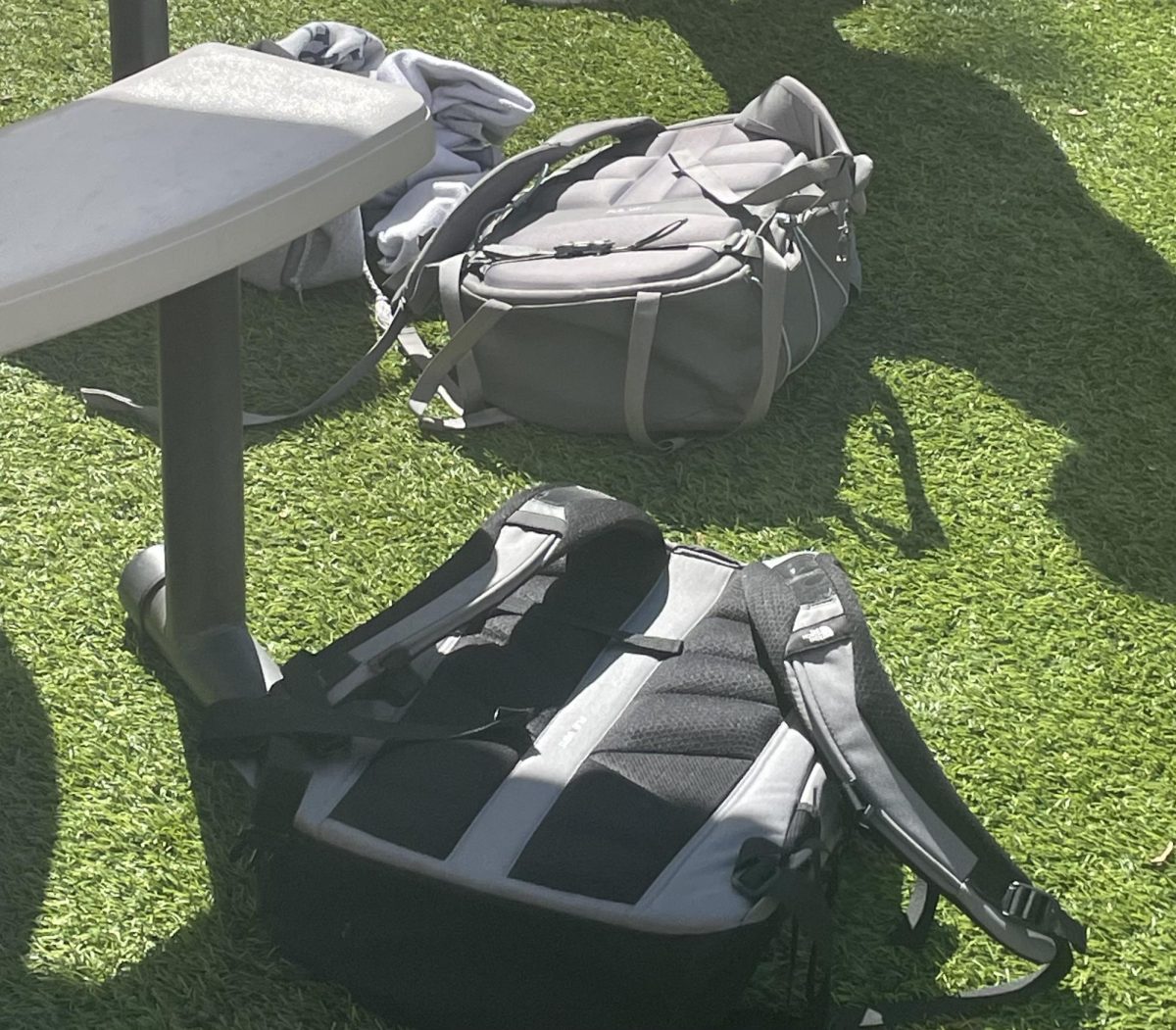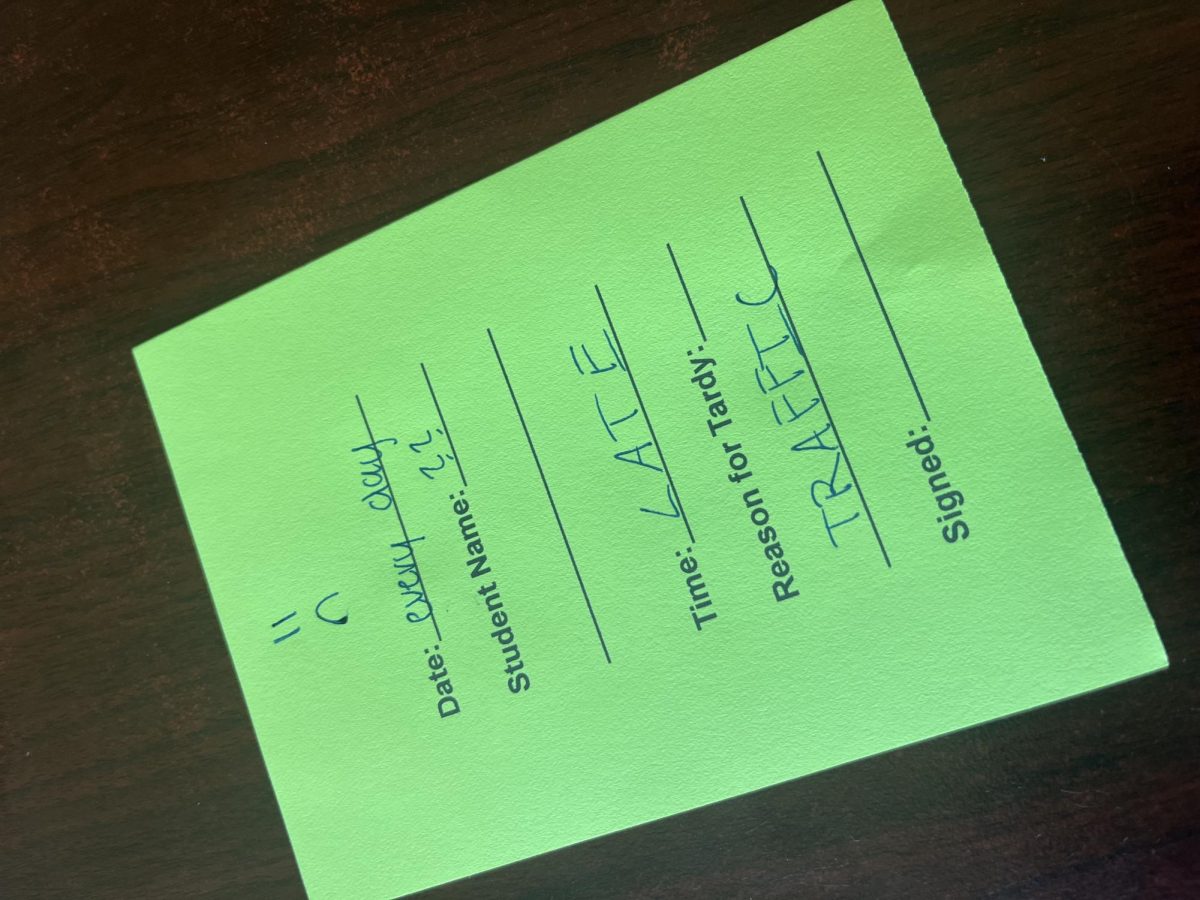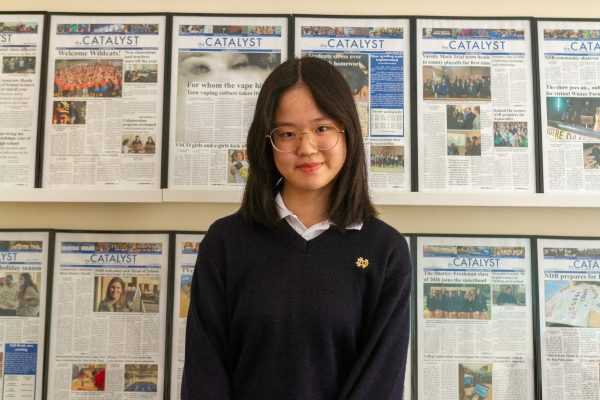The Catalyst (TC): What are some pros of speaking another language in the US or California?
Kathryn Balchard (KB): There’re so many pros in speaking another language, and I think it’s a great way to learn about other people and other cultures. I think if you can’t really understand somebody, unless you speak their language. It’s really different being able to travel if you can speak the language of the people. It is good for your brain. It gives you a lot of different opportunities, jobs, and social opportunities, really, really important.
TC: So, according to your personal experience, how did you learn Spanish? Do you speak it at home or major in college? Or somewhere else?
KB: I started learning Spanish the way a lot of our students learn Spanish. I started in kindergarten, but I didn’t have a whole lot of instruction until maybe middle school. And then I took it all the way through high school and college. And when I was 17, I had the opportunity to study abroad, to live with a family in South America. And that’s what really kind of, I think, helped me develop my Spanish skills and made me a lot more interested in studying it. So in college, I studied Spanish. I also studied Italian and I lived in Italy for a while. And then after college, I went back to South America and I taught English and lived with a Spanish-speaking family.
TC: What’s it like to talk in your second language with a native speaker? Did you face any difficulties?
KB: Of course. You thought you could speak this language really well, but actually when you’re talking to a native speaker, you don’t understand a lot of things. I think there can be cultural things that you don’t understand. It can be hard to have your brain process the language at the speed that they’re speaking. It can be hard to understand even just the context about what they’re speaking. So yes, talking with a native speakers can be really stressful and it can be really overwhelming. But eventually it gets easier like anything else. And then it gets to be really fun.
TC: How can families preserve their native language amidst the preference for dominant languages like English, and why is it important to do so?
KB: I grew up in an English speaking household and I live in an English speaking area predominantly. I can’t speak from my own personal experience but I do know from my friends who spoke different languages at home that it’s a huge part of their identity. Whether or not they speak the language really well, they have a lot of connection to it. So I think it can be really important for people in order to feel connected to their identities or to their family members or to their culture. But that said, I know it can be really hard. It can be really hard to maintain another language in your house. I think that’s really normal. And I think it’s just, everybody needs to be patient with themselves and kind to themselves and know that you can always go and learn another language. So even if you didn’t learn it when you were young, you take whatever you know and you can learn it later. You can have lots of opportunities to expose yourself and practice and all that stuff.
TC: As a language teacher in general, what are some challenges students usually face while learning a new language at school?
KB: I think the biggest challenge is time because it takes a long time to really learn a language. We’re trying to do it in class a lot of times, [but] we don’t have enough time to give everybody the practice they need to really become functional. [And] I think sometimes people feel really nervous at the beginning and it can be overwhelming. Try to be patient with yourself, be brave and willing to make mistakes and remember you are just trying to communicate and it’s okay if it’s not perfect. And to stick with it and to find things that if you really like music or if you really like to read in that language, try to give yourself lots of exposure so you can learn as much as you can.
TC: When people are functioning multiple languages, their brain messes up? Have you ever experienced that?
KB: Oh, all the time. When I learned Italian, that was really hard for me. I understood a lot because it was similar to Spanish, but then I would make a lot of mistakes because it was too similar to Spanish. So I would get confused. I think it’s so normal. And I think it depends on the day. Some days your brain can do it better than others, right? And, but remember you make mistakes in your native language. Like we all make mistakes in our first language too. You know, we’ll say things wrong all the time. So again, don’t be too hard on yourself. And remember the goal is communication and just keep at it because it is amazing how eventually you’ll stop making, you’ll stop making those mistakes as often.
TC: Do you recommend students keep studying another language beyond high school? Is spending the time worth it?
KB: I think it’s absolutely worth it. My best experiences, like some of the most fun I’ve ever had, have been when I’ve been living in another country. A lot of my best friends are from times when I lived in another country. I always tell students that I hope they’ll go and study abroad somewhere Spanish speaking, like that’s the key that you need to bring everything you’re learning in the classroom together. And it’s amazing how much just a brief time immersed in the language, how much you’ll learn. But that said, the most important thing to me is just get out and explore the world. So even if you don’t go somewhere Spanish speaking, or you don’t go somewhere, French speaking, just go somewhere, go somewhere different. You’ll see, you’ll learn a ton about yourself and about our country and your culture and your values.
Multi-language speakers face challenges: POV from Spanish teacher Kathryn Blanchard
The Catalyst / Amy Sun
Headshot of Kathryn Blanchard in her classroom where she teaches Spanish.
0
Navigate Left
-
 OpinionLetter to the editor: Harmful and dehumanizing language endangers marginalized communities
OpinionLetter to the editor: Harmful and dehumanizing language endangers marginalized communities -
 OpinionLetter to the editor: In response to 'Illegal immigration harms citizens and immigrants alike'
OpinionLetter to the editor: In response to 'Illegal immigration harms citizens and immigrants alike' -
 OpinionLetter to the editor: In response to 'Illegal immigration harms citizens and immigrants alike'
OpinionLetter to the editor: In response to 'Illegal immigration harms citizens and immigrants alike' -
 OpinionLetter to the editor: Illegal Immigration harms citizens and immigrants alike – A bigger picture
OpinionLetter to the editor: Illegal Immigration harms citizens and immigrants alike – A bigger picture -
 OpinionLetter to the editor: A closer look at U.S. immigration
OpinionLetter to the editor: A closer look at U.S. immigration -
 OpinionImportance of learning a different language at school
OpinionImportance of learning a different language at school -
 OpinionStudents should not carry backpacks in school
OpinionStudents should not carry backpacks in school -
 OpinionAttendance policies punish students for circumstances beyond their control
OpinionAttendance policies punish students for circumstances beyond their control
Navigate Right
About the Contributor

Amy Sun, Staff Writer

